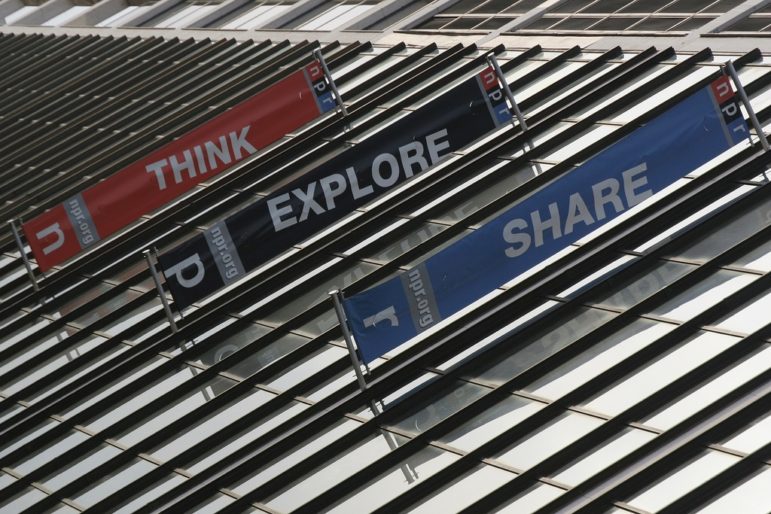
May 20, 2016; Associated Press, “Big Story”
NPQ has on a number of occasions published stories on the potential ethical issues involved when nonprofit journalists take grants to back coverage in the areas in which the donor has an interest and positions of their own. These stories have involved the Gates Foundation and David Koch, among others.
And now National Public Radio (NPR) has had its journalistic integrity called into question because it accepted $700,000 in grants from the Ploughshares Fund, including $100,000 in 2015 to support its reporting on the Iran nuclear deal. As stated on its website:
Ploughshares Fund is a global security foundation working to build a safe, secure world by developing and investing in initiatives to reduce and ultimately eliminate the world’s nuclear stockpiles and to promote stability in regions of conflict where nuclear weapons exist.
According to Ploughshares Fund’s 2015 annual report, the $100,000 grant to NPR was made to fund “national security reporting that emphasizes the themes of U.S. nuclear weapons policy and budgets, Iran’s nuclear program, international nuclear security topics and U.S. policy toward nuclear security.”
Did the Ploughshares gift(s) influence NPR’s coverage? Not according to NPR. In an emailed statement, NPR said of the relationship:
Sign up for our free newsletters
Subscribe to NPQ's newsletters to have our top stories delivered directly to your inbox.
By signing up, you agree to our privacy policy and terms of use, and to receive messages from NPQ and our partners.
It’s a valued partnership, without any conditions from Ploughshares on our specific reporting, beyond the broad issues of national and nuclear security, nuclear policy, and nonproliferation […] As with all support received, we have a rigorous editorial firewall process in place to ensure our coverage is independent and is not influenced by funders or special interests.
Statements by both Ploughshares and the White House make the claims of an editorial firewall and no influence more difficult to demonstrate and call NPR’s potential for conflicts of interest into question. In a New York Times Magazine profile earlier this month, Deputy National Security Advisor Ben Rhodes spoke of the Obama administration’s work to create an “echo chamber” of media coverage for the Iran nuclear deal.
“In the absence of rational discourse, we are going to discourse the [expletive] out of this,” he said. “We had test drives to know who was going to be able to carry our message effectively, and how to use outside groups like Ploughshares, the Iran Project, and whomever else. So we knew the tactics that worked.” He is proud of the way he sold the Iran deal. “We drove them crazy,” he said of the deal’s opponents.
For its part, Ploughshares cited its $100,000 NPR grant as a success in promoting the Iran nuclear deal. Board chair Mary Lloyd Estrin wrote in the Ploughshares Fund’s 2015 annual report, “less known [than the political support] is the absolutely critical role that civil society played in tipping the scales towards this extraordinary policy victory.” Rhodes was asked to testify at a Congressional hearing examining the administration’s role in coordinating media coverage of the Iran nuclear deal, but the administration has refused on his behalf, citing executive privilege.
Whether grant funds and an ongoing financial relationship between Ploughshares Fund and NPR influenced NPR’s editorial decisions may never be known. Looking at NPR’s general balance in reporting on the Iran nuclear deal might be instructive, as might be looking at NPR’s other foundation funding for news reporting, and especially for international affairs coverage. For an organization with the “strategic aspiration” to “be the model for high quality journalism in the 21st century, strengthening the cultural, civic and social fabric of our democracy,” NPR needs to live its mission through its funding decisions as well as its editorial choices.—Michael Wyland













